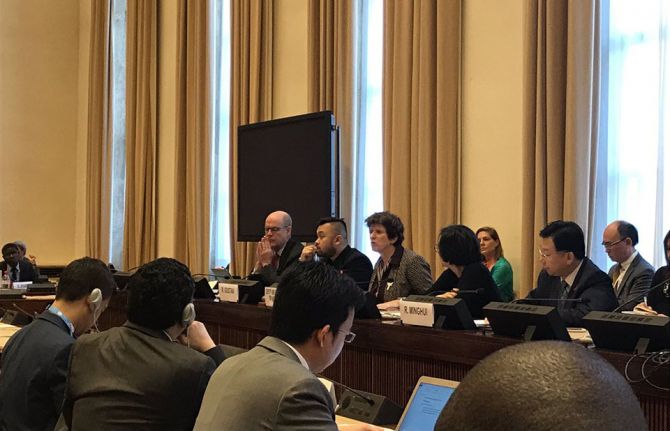

Feature Story
We need action on human rights
18 February 2019
18 February 2019 18 February 2019“The HIV epidemic is a human rights epidemic. An epidemic of human rights loss, denial, derailment and in some instances abuse and violation.” With these words, Kate Gilmore, the United Nations Deputy High Commissioner for Human Rights, opened the Consultation on Promoting Human Rights in the HIV Response.
But while there are commitments, treaties and agreements, action is needed—this was the call from the consultation, held in Geneva, Switzerland, on 12 and 13 February, which sought to share regional and subregional strategies and best practices.
The consultation heard that stigma and discrimination, poor access to justice and punitive laws, policies and practices are barriers to the most vulnerable people accessing HIV prevention, testing, treatment and care.
Throughout the event, there was a central theme of removing harmful criminal laws, funding human rights and working closely with the community, through a call for national and regional institutions to listen, act, lead, reform and fund.
While the traditional human rights barriers—for example, stigma and discrimination and criminalization—persist, new problems are emerging. Questions of how to ensure that criminalized populations are included in universal health coverage, or that human rights and key populations programmes continue to be funded as a country transitions to middle-income status, was raised. A number of speakers, including Michaela Clayton, Director of the AIDS and Rights Alliance for Southern Africa, endorsed a top-down, bottom-up approach to promoting human rights, drawing on the actions of both political leaders and civil society together.
“This isn’t easy. We can only do this by working in partnership: governments, civil societies, accountability mechanisms, human rights groups and health professionals,” said Tim Martineau, UNAIDS Deputy Executive Director, Programme, a.i.



